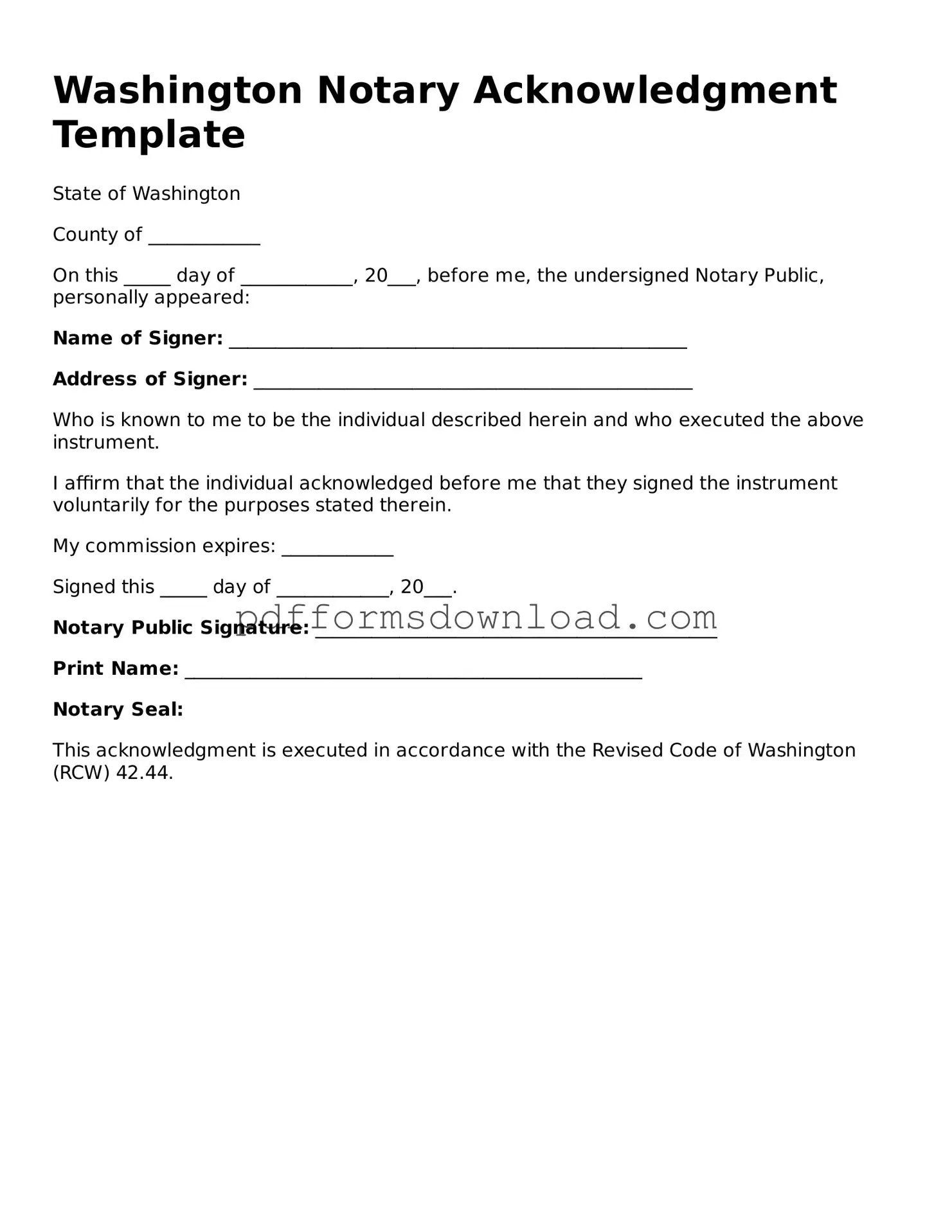What is a Washington Notary Acknowledgement form?
The Washington Notary Acknowledgement form is a legal document used to confirm that a notary public has verified the identity of a signer. This form is often required for various legal documents, such as contracts, deeds, and affidavits, to ensure that the signatures are authentic and that the signers are acting voluntarily.
Why is a Notary Acknowledgement necessary?
A Notary Acknowledgement is necessary to prevent fraud and ensure that documents are executed properly. It provides a layer of protection by confirming the identity of the signer and their willingness to sign the document. Many institutions, including banks and courts, require this form for legal validity.
How do I complete a Notary Acknowledgement form in Washington?
To complete a Notary Acknowledgement form, you need to provide the following information: the name of the person signing, the date of the signing, and the type of document being acknowledged. The notary will then verify the signer's identity, witness the signing, and complete the form by adding their signature, seal, and date of notarization.
Who can serve as a notary public in Washington?
In Washington, any individual who is at least 18 years old, a resident of the state, and has completed the required training and application process can serve as a notary public. They must also pass a background check and obtain a notary bond before they can officially perform notarial acts.
What types of documents typically require a Notary Acknowledgement?
Common documents that often require a Notary Acknowledgement include real estate transactions, powers of attorney, wills, and various contracts. However, it’s important to check specific requirements for each document, as not all documents need notarization.
Is there a fee for notarizing a document in Washington?
Yes, notaries in Washington are allowed to charge a fee for their services. The maximum fee a notary can charge is $10 per notarial act. It’s advisable to confirm the fee with the notary beforehand, as some may offer their services for free or at a reduced rate.
How long is a Notary Acknowledgement valid in Washington?
A Notary Acknowledgement does not have a specific expiration date. However, the document to which it is attached may have its own validity period. It’s essential to ensure that the document is used within any relevant timeframes to avoid potential issues.
Can I use a Notary Acknowledgement form from another state in Washington?
Generally, a Notary Acknowledgement form from another state can be accepted in Washington, provided it meets the legal requirements of the state where it was executed. However, it’s best to consult with a legal professional to ensure compliance with Washington laws.
What should I do if my Notary Acknowledgement form is rejected?
If your Notary Acknowledgement form is rejected, first check the reason for the rejection. Common issues include missing information or incorrect notarization. Address the specific issues, and consider consulting with a legal professional for guidance on how to properly complete the form before resubmitting it.

